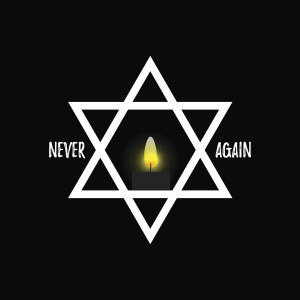
The United States is home to more than 40 museums and memorials dedicated to remembering the Holocaust. Some critics wonder why New York City or Los Angeles should be home to a memorial of this tragedy, but America is home to millions of Jews who were affected by World War II. Elie Wiesel is one immigrant who came to the U.S. about 10 years after his liberation from Buchenwald. He went on to become an outspoken activist for human rights around the world, winning the 1986 Nobel Peace Prize and dozens of other international honors for his work for innocent victims. His death on July 2 was a trending topic on social media, but it didn’t come close to explaining the importance of this man.
Elie’s Early Life
Elie was born in 1928, to a Jewish family in Romania. He learned Hebrew and studied the Torah, but in his later years, he would call himself an agnostic. Still, his was ethnically Jewish, which led to him and his family being sent to the Auschwitz concentration camp in 1945 where his mother and younger sister were killed. He and his father were separated from Elie’s two older sisters, when the two men were sent to Buchenwald. His sisters would survive the war, but his father died a few weeks before Buchenwald was liberated by the U.S. Third Army. Once the camp was freed, Elie went to France where he worked as a journalist. A close friend encouraged Wiesel to write about his experience during the Holocaust. One book, “Le Nuit,” or “Night,” would go on to be published in France and translated into more than 30 languages. It is now considered one of the key pieces of Holocaust literature. Oprah Winfrey brought national attention to “Night” in the mid-2000s when she chose it as a spotlight edition for her book club.
His Legacy
In the mid-1950s, Wiesel would move to the United States as a foreign correspondent. He continued to write books about the Holocaust. Historians credit Wiesel with giving the word Holocaust more meaning, but Wiesel never believed that there was a word that could really define what happened during the war. In “Night” he writes:
“It was pitch dark. I could hear only the violin, and it was as though Juliek’s soul were the bow. He was playing his life. The whole of his life was gliding on the strings—his last hopes, his charred past, his extinguished future. He played as he would never play again…When I awoke, in the daylight, I could see Juliek, opposite me, slumped over, dead. Near him lay his violin, smashed, trampled, a strange overwhelming little corpse.”
Wiesel campaigned against racism, hatred and genocide, not only against the Jews, but in South Africa, Ethiopia and Serbia. He educated people about the Holocaust and was instrumental in building the United States Holocaust Memorial Museum in Washington, D.C. He holds more than 90 honorary degrees from universities around the world.
Learn More About Elie Wiesel and the Holocaust
It’s been said that those who don’t understand history are destined to repeat it. This is why the Holocaust museums are vital to society today. Make plans to visit one of the sites. Many of Wiesel’s books are still available at the bookstore. “Night” may be at your library, but a quick Google search for the book turns up a free .PDF file that can be downloaded to your electronic device. Reviewers criticize the nonfiction accounts, saying that the book often reads more like a fictional narrative, but memories don’t always follow a documentary-style telling. His books are very intense, but provide an authentic look into the Holocaust from a survivor’s point of view.

